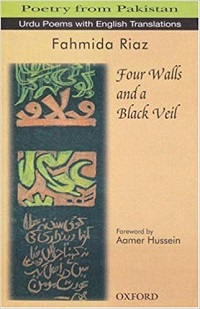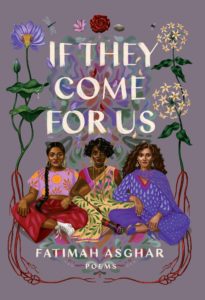Books
Why I Began Studying Pakistani Feminist Poetry

Owing to my cultural heritage, it’s a disgrace that I don’t know sufficient about Pakistani literature. As a toddler of immigrants who willfully selected to not embrace Urdu rising up, I remorse my obstinance now. Plus, with the world instantly closing off to one another bodily in an effort acquire management over COVID-19, preserving these cultural connections open and well-traveled appears extra necessary than ever. My father has been making an attempt to reveal Urdu writing to me currently, in hopes that I’ll try to be taught the language by way of the clever course of prose and poetry. And I’m beginning to, although most likely not within the course he was imagining. I’m discovering the fiery feminine voices of Urdu poetry.
Pakistan has an extended legacy of beautiful literature—in truth, the nation bubbles with an abundance of ladies writers at present, together with Kamila Shamsie, Bina Shah, Sara Suleri, and Saba Imtiaz. But when we’re talking particularly of writing in Urdu, then you should deal with poetry. Urdu exists for poetry—its cadence throbs like heartbeats, it rolls by way of the mouth and thoughts like cascading water. Briefly, it’s a fantastic language. Sadly I can’t learn Urdu, however I can dig the translations for now. And as for the poetry itself, nicely, males dominate that scene—consider Faiz Ahmad Faiz, N.M. Rashed, Miraji, to call just some. However it’s the ladies’s voices which have captured my consideration and sing by way of my blood.
That fascination started with Fahmida Riaz (1946–2018), the primary poet I began to learn and whose fierce and seductive language struck my coronary heart. Author, poet, activist, feminist, she defied social norms with topics issues that have been altogether taboo for girls to breathe and advocated for human rights till her dying. And her phrases made me notice I had neglected a complete world of Pakistani tradition. How blind to me, how narrow-sighted. Take into account the poem “Till When”:
Till when will you like me,
When?
Till child-creating blood seeps from my womb;
So long as my shade is recent,
My physique agency.
But there’s someplace past this:
Class ID: 867
Class ID: 1375
Verify Your Shelf Publication
Signal as much as obtain Verify Your Shelf, the Librarian’s One-Cease Store For Information, E-book Lists, And Extra.
Thanks for signing up! Regulate your inbox.
By signing up you conform to our Phrases of Service
I too have traveled from there.
I lengthy for the unknown realm:
You received’t be with me till then.
I daresay this isn’t fairly the poetry my dad had in thoughts when entreating me to Urdu writing, however how may I presumably ignore this? The primary stanza speaks of herself as nothing however a vessel, passive, totally cognizant of her worth in patriarchal eyes. The second stanza is transformative, it reveals her consciousness blossoming out from simply wanting upon her physique as a 3rd particular person. Her want for freedom from entrapment—social, bodily, gendered, organic, emotional—is so palpable, particularly in that wealthy dismissal within the final line. Riaz’s poetry encapsulates the battle that female views face in being heard. A battle that will take form in lots of kinds, however is basically shared. Girls’s voices typically differ so clearly from males due to our subjugation and objectification, demanding us to talk of our blood and physique fully as our personal. And that is widespread throughout the globe.
 Since then, I’ve been delving into different writers, notably Kishwar Naheed (one other revered, revolutionary poet) and Fatima Asghar, a up to date younger poet whose assortment If They Come For Us (written in English) stokes flames that burn extra intently to my life experiences and outlooks. These writers inspire me to truly tackle studying Urdu itself, as a result of I need to learn the various authors of their true type, and allow them to solid their spell on me with none barrier. We’re continuously reminded that point is brief, and dwelling is simply so long as we make it, so I’d wish to reside having a greater connection to my sisters (and brothers) of my heritage.
Since then, I’ve been delving into different writers, notably Kishwar Naheed (one other revered, revolutionary poet) and Fatima Asghar, a up to date younger poet whose assortment If They Come For Us (written in English) stokes flames that burn extra intently to my life experiences and outlooks. These writers inspire me to truly tackle studying Urdu itself, as a result of I need to learn the various authors of their true type, and allow them to solid their spell on me with none barrier. We’re continuously reminded that point is brief, and dwelling is simply so long as we make it, so I’d wish to reside having a greater connection to my sisters (and brothers) of my heritage.
Plus, I look ahead to introducing some poets to my dad as nicely.



